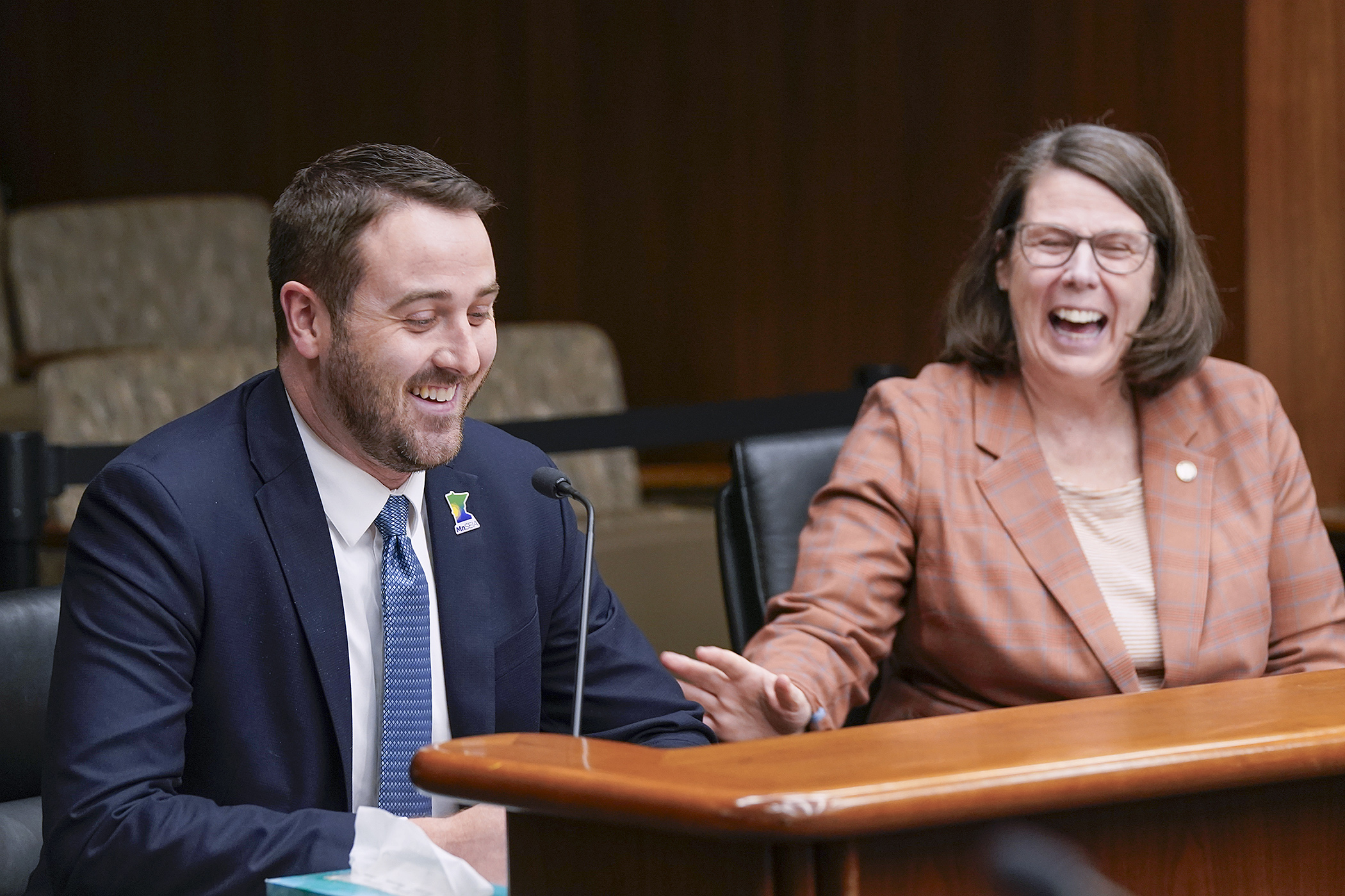Electrical upgrade costs could be shared under bill

When she decided to have solar panels installed on her home, Rep. Patty Acomb (DFL-Minnetonka) learned something about the economics of introducing a new mode of generating electricity into her neighborhood.
“Our project triggered the need for a new transformer,” she told the House Climate and Energy Finance and Policy Committee Wednesday. “If we wanted to continue our project, we’d have to pay for the total cost of the improvements, even though the expanded capacity went above our project’s needs. The result [was] the potential project after ours would not be required to pay for any of this capacity.”
To her, it didn’t make sense that the cost of what could become a shared benefit for an area’s residents should be borne by the first homeowner triggering the need for a distribution upgrade. Since then, her electric utility, Xcel Energy, has implemented a cost-sharing pilot project for small rooftop projects in which each homeowner pays into an upgrade fund that covers costs over $15,000.
That is the genesis of HF5097, an Acomb-sponsored bill that would require the Public Utilities Commission to develop a cost-sharing process for distribution system upgrades and would create an ombudsperson position at the commission to assist interconnection applicants and facilitate interconnection disputes between applicants and utilities.
The committee laid the bill over, as amended, for possible inclusion in a larger climate and energy bill.
“Interconnection is a set of rules that new electricity generation must follow to connect to the grid,” Acomb said. “Currently, in just the Xcel area, there are over 400 project applications that are in the queue and deemed complete waiting to be interconnected. As I understand the reason for the large numbers, it’s mostly due to congestion on the grid or the lack of capacity for new generation and the costs with the associated upgrades.”
“I appreciate the idea of it,” said Rep. Chris Swedzinski (R-Ghent). “I’m just not sure about starting a program that potentially could affect utilities and ratepayers in a negative way, to allow ratepayers to subsidize the costs of interconnection for developers from potentially out of state or in state. And I’m concerned about empowering unelected folks at the PUC to come up with a program that we’re not exactly sure what it’s going to look like.”
The nonpartisan Legislative Budget Office estimates that the bill’s changes would require $266,000 from a restricted miscellaneous special revenue fund in fiscal year 2025 and $497,000 in the 2026-27 biennium.
Related Articles
Search Session Daily
Advanced Search OptionsPriority Dailies
Stable budget outlook projects $3.7 billion surplus now, no deficit in next biennium
By Lisa Kaczke The projected surplus for Fiscal Years 2026-27 is now higher than it was in the November estimate, and no deficit is projected for the next biennium.
“Minnesota’s budge...
The projected surplus for Fiscal Years 2026-27 is now higher than it was in the November estimate, and no deficit is projected for the next biennium.
“Minnesota’s budge...
Legislative leaders set 2026 committee deadlines
By Lisa Kaczke Legislative leaders on Tuesday officially set the timeline for getting bills through the committee process during the upcoming 2026 session.
Here are the three deadlines for...
Legislative leaders on Tuesday officially set the timeline for getting bills through the committee process during the upcoming 2026 session.
Here are the three deadlines for...